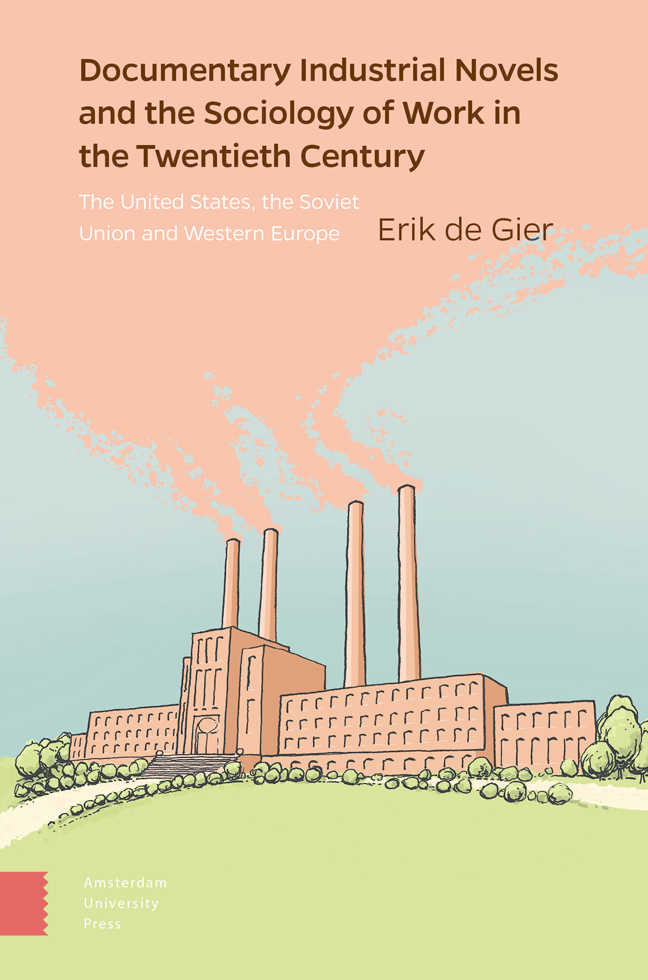 Documentary Industrial Novels and the Sociology of Work in the Twentieth Century
Documentary Industrial Novels and the Sociology of Work in the Twentieth Century Published online by Cambridge University Press: 20 February 2024
Abstract
This chapter focuses on the main research question dealt with in this study: do modernist 20th-century industrial novels have a surplus value for industrial sociology? There are several reasons for affirming this question. During recent decades industrial sociology has lost momentum in academic study, due for example to the increased significance of organizational sociology and the popularity of human resource management. A revaluation of the historical dimension in industrial sociology could restore this, as well as the application of relevant complementary sources such as realist industrial novels. This book focuses on the possible contribution of 20th-century modernist industrial novels written in the USA, the Soviet Union, and Western Europe in successive time periods in this so-called ‘machine age’.
Keywords: 20th-century industrial novels, industrial sociology, alternative social research sources, history of sociology, interdisciplinary international comparative approach.
Introduction
Modernist 20th-century (documentary) industrial novels, partially or completely based on empirical facts and statistical data, constitute a typical 20th-century phenomenon. Before that time, starting with the first industrial revolution, a substantial number of industrial novels had already been written in various countries. But with some exceptions, such as Friedrich Engels's non-fictional reportage The Condition of the Working Class in England (Engels, 1845/1993) and Emile Zola's mineworker novel Germinal (Zola, 1885/1991), these were not intentionally based on empirical facts, but were fiction. One of the most renowned examples of a narrative industrial novel is Charles Dickens's Hard Times (Dickens, 1854/1993). In this novel Dickens questioned working conditions and labour relations in his fictional ‘Coketown’ (Manchester). Dickens was not unique. In the middle of the 19th century there were several other renowned British and American authors who published remarkable industrial novels. British literary critic and art historian Raymond Williams summarized a number of these novels in his seminal book Culture and Society 1780–1950 (Williams, 1958/1963). Williams considered mid-19th-century British authors of industrial novels as expressions of ‘industrialism’ – a new collective system composed of manufacturing and productive institutions and their general activities. In his view industrial novels such as Looking Backward (Bellamy, 1888), Mary Barton (Gaskell, 1854/2008), North and South (Gaskell, 1854–1855/1996), Hard Times (Dickens, 1854/1993), Sybil (Disraeli, 1845), Anton Locke (Kingsley, 1892/2016), and Felix Holt (George Eliot, 1866) ‘provide vivid descriptions of life in an unsettled industrial society, but also illustrate certain common assumptions within which direct response was undertaken’ (Williams, 1958/1963, pp. 13, 99).
To save this book to your Kindle, first ensure [email protected] is added to your Approved Personal Document E-mail List under your Personal Document Settings on the Manage Your Content and Devices page of your Amazon account. Then enter the ‘name’ part of your Kindle email address below. Find out more about saving to your Kindle.
Note you can select to save to either the @free.kindle.com or @kindle.com variations. ‘@free.kindle.com’ emails are free but can only be saved to your device when it is connected to wi-fi. ‘@kindle.com’ emails can be delivered even when you are not connected to wi-fi, but note that service fees apply.
Find out more about the Kindle Personal Document Service.
To save content items to your account, please confirm that you agree to abide by our usage policies. If this is the first time you use this feature, you will be asked to authorise Cambridge Core to connect with your account. Find out more about saving content to Dropbox.
To save content items to your account, please confirm that you agree to abide by our usage policies. If this is the first time you use this feature, you will be asked to authorise Cambridge Core to connect with your account. Find out more about saving content to Google Drive.